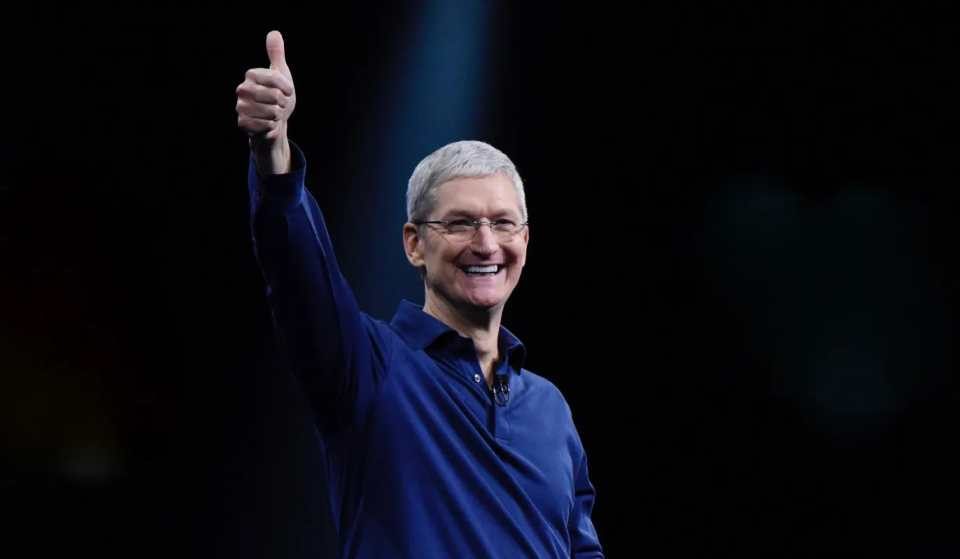Apple nears $4 trillion valuation, surpassing Nvidia amid AI boost and iPhone surge

Apple is on the verge of reaching an unprecedented $4 trillion market valuation, buoyed by investor excitement over its recent AI-driven initiatives aimed at reviving sluggish iPhone sales. The news comes just over a month ago after Nvidia claimed the title of the world’s most valuable company during a Wall Street surge following Trump’s election victory.
Apple’s stock has surged nearly 16% since early November, adding approximately $500 billion to its market value. This growth has positioned Apple ahead of rivals like Nvidia and Microsoft in the race to this significant milestone.
On November 7, Nvidia made headlines as the first company to surpass a $3.6 trillion valuation. A few weeks earlier on October 25, Nvidia briefly overtook Apple to become the world’s most valuable company, with a valuation of $3.53 trillion during trading hours. By the close of the day, Nvidia’s valuation stood at $3.47 trillion, while Apple ended slightly ahead at $3.52 trillion.
Apple’s recent stock rally reflects “investor enthusiasm for artificial intelligence and an expectation that it will result in a supercycle of iPhone upgrades,” according to Tom Forte, an analyst at Maxim Group.
Currently valued at approximately $3.85 trillion, Apple is worth more than the combined market values of Germany and Switzerland’s main stock exchanges. The company has a history of setting trillion-dollar milestones, driven largely by its iPhone cycles, Reuters reported.
In recent years, Apple has faced criticism for lagging in its AI strategy compared to competitors like Microsoft, Alphabet, Amazon, and Meta. These companies have aggressively invested in emerging AI technologies, leaving Apple playing catch-up.
Nvidia, which has seen its shares skyrocket over 800% in the past two years, remains a standout in the AI space. By comparison, Apple’s stock has nearly doubled in the same timeframe.
Earlier this month, Apple began integrating OpenAI’s ChatGPT into its devices after announcing plans in June to roll out generative AI technology across its suite of apps. Despite these advancements, Apple’s revenue forecast for its fiscal first quarter predicts modest growth in the “low- to mid-single digits,” prompting questions about the momentum of its iPhone 16 series during the holiday season. Analysts, however, anticipate a rebound in iPhone revenue by 2025.
Morgan Stanley analyst Erik Woodring commented on Apple’s outlook, stating, “Although near-term iPhone demand is still muted … it is a function of limited Apple Intelligence features and geographic availability, and as both broaden, it will help to drive an improvement in iPhone demand.” Woodring also reaffirmed Apple’s status as the brokerage’s “top pick” for 2025, Reuters reported.
Apple’s price-to-earnings ratio has risen to 33.5, its highest in nearly three years, compared to 31.3 for Microsoft and 31.7 for Nvidia. This valuation has prompted Warren Buffett’s Berkshire Hathaway to reduce its holdings in Apple this year, citing concerns over inflated valuations.
Eric Clark, portfolio manager at the Rational Dynamic Brands Fund, which holds Apple shares, remains optimistic: “I suspect the stock in three years will not look as expensive as it does today.”
Geopolitical risks, such as potential retaliatory tariffs on goods from China, also loom over Apple. President-elect Donald Trump has proposed tariffs of at least 10% on Chinese imports. However, Woodring predicts Apple may secure exemptions for products like iPhones, Macs, and iPads, similar to the 2018 tariff round.
Last week, Apple shares took a hit during a broader Wall Street selloff after the Federal Reserve projected a slower pace of rate cuts for next year. Still, investors expect overall monetary easing to support stock markets in the coming year.
Sam Stovall, chief investment strategist at CFRA Research, remarked, “Technology has been regarded by investors as a new form of a defensive sector because of their earnings growth.” He noted that the Fed’s actions could have a greater impact on other sectors, such as consumer discretionary and financials, with less effect on technology.
Adam Sarhan, CEO of 50 Park Investments, summed up Apple’s performance, stating, “Apple’s approach to $4 trillion market cap is a testament to its enduring dominance in the tech sector. This milestone reinforces Apple’s position as a market leader and innovator.”
The ascent of Apple and Nvidia this year highlights the increasing influence of AI-driven technology in the market, cementing their positions among the world’s most valuable companies.




